I grew up in a Hindu family, and within Hinduism, hair is regarded as a sacred part of the body.
My mom always told me not to cut my hair on certain days like Saturdays, Thursdays, or Tuesdays. There are many rituals and beliefs associated with cutting hair.
Today, I’ll share some religious perspectives on what it means if you dream about cutting your hair.
I will explain how hair is perceived in various cultures and religions, as well as the spiritual significance of cutting hair in dreams.
We will explore cultures such as Shintoism, Chinese, Greek, Norse, and more to gain insights into their unique beliefs and interpretations regarding hair and dreams about cutting it.
Cutting Hair in Dream in Hindu Symbolism
In Hinduism, hair is considered to be an important part of the body and is believed to carry energy and spiritual significance.
Cutting hair in dream can hold multiple meanings and is often associated with rituals and symbolism.
One such ritual is Mundan, which is the traditional Hindu ceremony of shaving off a child’s hair.
If you see yourself cutting your hair in a dream, it could be a representation of the Mundan ritual.
This ritual is usually performed in the early years of a child’s life and is seen as a way to purify the child and symbolize a fresh start.
It is believed that by shaving off the hair, any negative energy or influences from past lives are removed, allowing the child to begin their life anew.
The hair is often considered sacred and is offered to the gods as a symbol of devotion and surrender.
Cutting hair in dream may also symbolize your respect and devotion towards a departed loved one.
In Hindu culture, when a family member passes away, it is common for the son to cut his hair as a sign of respect and devotion.
This act is seen as a way of showing reverence to the departed soul and honoring their memory.
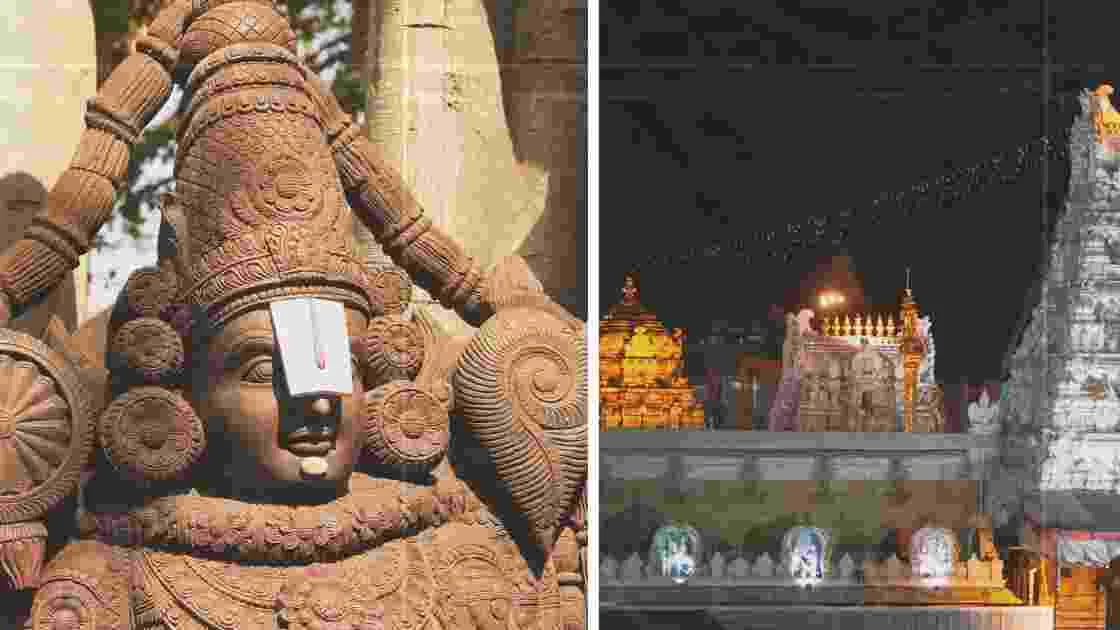
Furthermore, hair cutting is practiced as an act of devotion in Hindu temples as well.
For example, in temples like the Tirupati temple, devotees offer their hair as a symbol of surrender and gratitude to the deities.
This act represents a deep sense of devotion and offering oneself completely to the divine.
Biblical Meaning of Cutting Hair in Dream
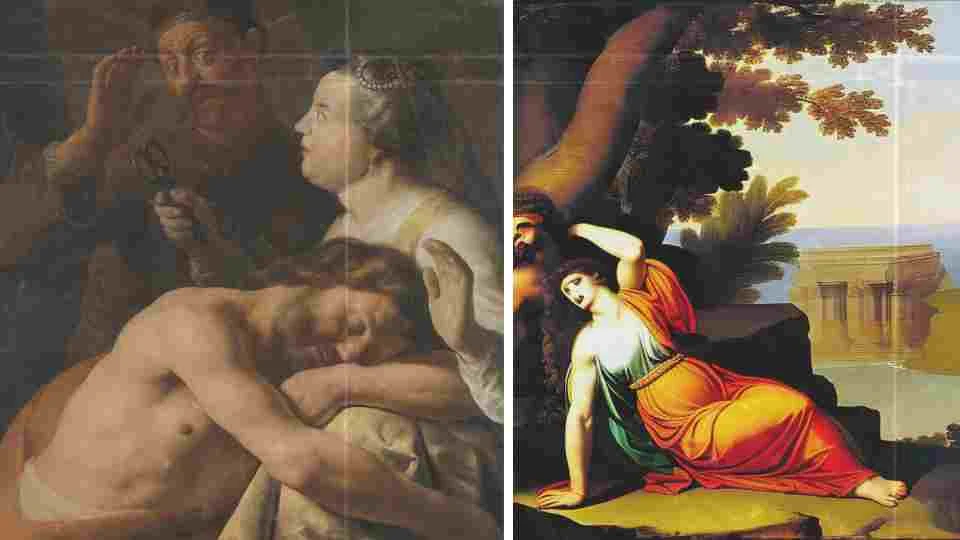
In Christianity, the spiritual significance of cutting hair in dreams can be understood in two main ways.
Firstly, cutting hair can symbolize the loss of spiritual strength and connection with God.
This is illustrated in the story of Samson and Delilah. Samson had incredible strength, which was tied to his long hair.
However, when Delilah cut his hair, his strength was taken away.
In a dream, cutting hair can serve as a warning against succumbing to temptation or straying from one’s spiritual path, as it can lead to a weakening of the divine connection.
Secondly, cutting hair in Christianity can represent personal sacrifice and humility.
This can be observed in the practices of monks and nuns who shave their heads.
By voluntarily giving up their hair, they symbolize a renunciation of worldly attachments and a dedication to a more spiritually focused life.
In a dream, cutting hair can indicate a call to let go of material desires and embrace a humble and selfless way of living.
The Theseus and the Minotaur Myth
In Greek mythology, dreaming of cutting hair reflects the spiritual significance seen in the story of Theseus and the Minotaur.
Theseus, a hero, goes on a dangerous journey to confront the Minotaur, a half-human, half-bull creature.
Before starting his journey, Theseus cuts a lock of his own hair and offers it to the god Poseidon.
By doing this, he seeks the god’s protection and guidance.
This myth shows that cutting hair is connected to acts of devotion and seeking favor from the gods.
Theseus cutting his hair shows his strong dedication and trust in Poseidon’s help.
It symbolizes a sincere desire to seek favor from the divine and to receive divine intervention on his journey.
Just as Theseus trusted in Poseidon’s help, dreaming of cutting hair can remind us to have faith and seek spiritual support when faced with challenges or uncertain paths.
A Call to Protect One’s Inner Strength and Beauty
In Norse mythology, there is a story that illustrates the spiritual significance of cutting hair in dream.
The story involves the god Thor and his encounter with two mischievous dwarf brothers named Brokkr and Sindri.
The brothers challenge Thor by cutting his wife Sif’s golden hair, which is known to be her source of beauty and power.
Thor, upon discovering this, becomes enraged and threatens the dwarves.
Fearing for their lives, Brokkr and Sindri craft a new set of magical hair for Sif, and they also create other powerful items, including Thor’s hammer, Mjölnir.
However, the new hair they make is not as radiant as Sif’s original golden locks.
This myth reveals the consequences of cutting hair in dream without permission or against one’s will.
In this context, it symbolizes a loss of power or connection to the divine. Sif’s hair represents her inner strength and beauty, and its removal weakens her.
It also teaches a lesson about the value and significance of one’s inherent attributes and connections to the spiritual realm.
A Reminder of Our Duty to Others
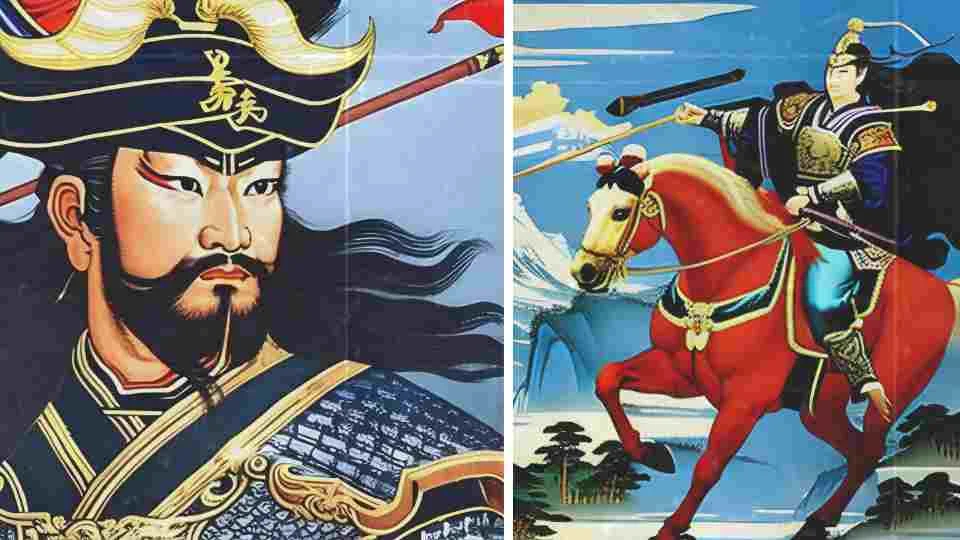
The spiritual significance of cutting hair in a dream in Chinese culture is often associated with the story of Yue Fei.
During the Song Dynasty, China was facing threats from invaders who wanted to conquer the country.
Yue Fei was a loyal and patriotic warrior who wanted to protect his homeland.
Yue Fei had a strong sense of duty and love for his country. He believed in doing whatever it took to defend China and its people.
One day, he made a brave and symbolic decision. He decided to cut off his own hair.
Hair was considered an important part of a person’s appearance and identity in ancient China.
Cutting off one’s hair was seen as a significant sacrifice and a way to show devotion and loyalty.
Yue Fei believed that by cutting his hair, he was making a powerful statement about his commitment to his country.
When Yue Fei cut his hair, it was like a solemn act of dedication and sacrifice.
He was showing that he was willing to give up his personal comfort and appearance for the greater good of his people and his country.
This act represented his strong sense of loyalty, honor, and love for China.
Dreaming of cutting hair in Chinese culture can hold similar spiritual meanings, urging individuals to embrace change, remain dedicated, and be willing to sacrifice for what they believe in.
Also Read: Dreaming about Lice in someones hair
A Sign of the Kamikiri’s Presence
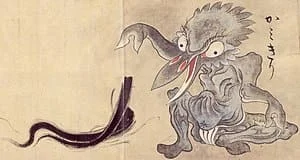
Dreaming of cutting hair holds symbolic meaning in Shintoism. It is associated with the supernatural being called Kamikiri.
Kamikiri is said to secretly cut people’s hair on their heads without them noticing.
When you dream about cutting your hair in Shintoism, it is seen as a sign that the kamikiri are visiting you in your dream.
In your dream, you may not notice the hair cutting happening, and it represents a mysterious and sneaky act.
This act in your dream represents a violation of your personal boundaries and privacy. It may make you feel uncomfortable because someone is altering your appearance without your consent.
It can also leave you feeling confused and vulnerable, as you try to understand who or what is responsible for changing your hair in the dream.
A Warning Against Giving Away Your Life Force
The spiritual significance of cutting hair in a dream within Japanese folklore symbolizes a dangerous encounter with the Yama-uba and the potential loss of one’s life force.
In Japanese folklore, there is a story about a mountain witch called Yama-uba.
She is a mysterious and magical character who tempts travelers with a special comb that has the power to cut their hair.
However, this seemingly innocent act of cutting hair by the Yama-uba carries a deeper spiritual significance and danger for those who fall into her trap.
According to the tale, when Yama-uba encounters unsuspecting travelers, she offers them her magical comb.
This comb is said to possess the ability to cut hair effortlessly and painlessly.
However, there is a hidden danger.
When the travelers accept the comb and allow Yama-uba to cut their hair, their life force begins to drain away.
For example if you used to enjoy a particular hobby then it will no longer bring you pleasure, and you will struggle to find motivation or energy for daily activities.
The spiritual significance of cutting hair in this story lies in the concept of life force and energy.
In Japanese folklore, it is believed that a person’s life force resides within their hair.
By cutting the hair, Yama-uba is symbolically severing the connection between the travelers and their life force, draining them of their vital energy.
The story warns us about the potential consequences of giving away our life force or energy to those who may have ill intentions.
Siddhartha’s Haircut: A Symbol of Detachment and Letting Go
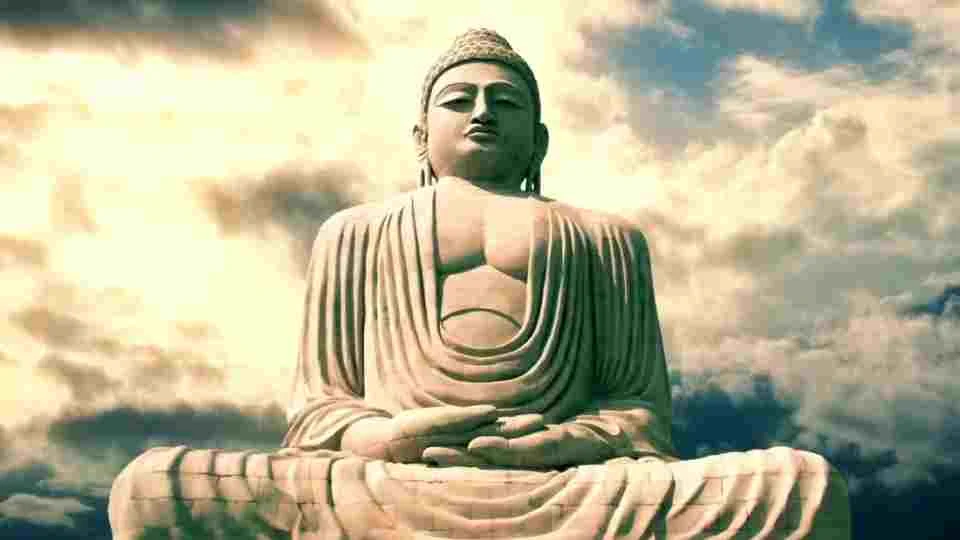
The spiritual significance of cutting hair in dream in Buddhism means detachment and letting go.
In Buddhism, there is a very special story about a prince named Siddhartha Gautama.
Siddhartha was a prince who lived a luxurious and comfortable life in a palace.
But one day, he decided to leave behind his royal life and seek a deeper understanding of the world and the meaning of life.
To begin his spiritual journey, Siddhartha renounced his princely life and cut off his long, beautiful hair.
This act of cutting his hair symbolized his determination to let go of worldly attachments and embrace a simpler, more humble existence.
It was a way for him to show that he was ready to leave behind his luxurious life and walk the path of enlightenment.
By cutting his hair, he was showing his commitment to a life of simplicity and inner growth.
Cutting his hair was also a symbol of renunciation.
Renunciation means giving up something, like a prince giving up his luxurious life, to focus on something more important and meaningful.
Siddhartha renounced his royal life and cutting his hair was a way to show this commitment.
The story of Siddhartha Gautama cutting his hair has inspired many Buddhists around the world.
It teaches us the importance of letting go of material desires and attachments, and focusing on inner peace, wisdom, and compassion.
Just like Siddhartha, we can learn to find true happiness and meaning by seeking a deeper understanding of ourselves and the world around us.
Dreaming of Cutting Hair in Islam: The Hajj
Dreaming about cutting hair in Islam is a symbol of purification and completion during Hajj.
In Islam, there is a special tradition called Hajj, which is the pilgrimage to the holy city of Mecca.
During this pilgrimage, pilgrims perform various rituals to seek spiritual purification and connect with Allah.
One of these rituals involves cutting the hair, and it holds a significant spiritual meaning.
When a Muslim dreams about cutting their hair, it signifies a willingness to let go of worldly attachments and surrender to the will of Allah.
It can represent a longing for spiritual renewal and a desire to cleanse the heart and soul.
Dreaming about cutting hair in the context of Hajj also reflects the completion of a significant spiritual undertaking.
Just as pilgrims shave their heads or trim their hair at the end of the pilgrimage, dreaming about cutting hair can indicate a sense of accomplishment and fulfillment of religious duties.
An Act of Mourning and Grief in the Tale of Cú Chulainn
Dreaming about cutting hair in Celtic Mythology has connections with the story of Cú Chulainn.
In Celtic mythology, there is a story about a heroic figure named Cú Chulainn from Ireland.
When Cú Chulainn received news of the death of his dear friend, he was overcome with grief and mourning.
As a symbol of his sorrow and respect, Cú Chulainn chose to cut his own hair.
This act carried deep spiritual significance and represented his profound mourning for the loss of his friend.
Dreaming of hair cutting in Celtic mythology can also represent the idea of letting go and moving forward.
For instance, by cutting his hair, Cú Chulainn acknowledged the irrevocable change that had occurred and allowed himself to begin the healing process.
It symbolized his readiness to face the future and carry the memory of his friend with him, transformed by the experience of loss.
Someone Cutting Your Hair in Native American Traditions
In Native American cultures, cutting hair can hold spiritual significance in various tribes, including the Lakota Sioux. One example can be seen in their coming-of-age ceremonies.
Among the Lakota Sioux and other Native American tribes, when a young person reaches a certain age, they may undergo a special ceremony to mark their transition into adulthood.
As part of this significant rite of passage, the young person’s hair may be cut.
The act of cutting their hair symbolizes a transformative journey from childhood to adulthood.
It signifies the assumption of new responsibilities, the development of personal strength and wisdom, and the embracing of one’s cultural identity within the community.
In these coming-of-age ceremonies, spiritual leaders and elders play a crucial role. They guide and support the young person throughout the process, offering prayers, teachings, and blessings to help them navigate their new stage of life.
The cutting of the hair by a trusted elder or spiritual figure holds deep spiritual meaning.
Is it good to dream about cutting hair?
Dreaming about cutting hair is not inherently good or bad in any specific context of religion or culture.
In Hinduism, for example, cutting hair in a dream can be associated with various meanings. It can represent purification during rituals, showing devotion and respect. On the other hand, it can also be related to mourning or symbolize a fresh start after birth.
Here’s a table summarizing the general perception of cutting hair as either good or bad in different religions and cultures:
| Religion/Culture | Cutting Hair in Dreams: Good or Bad? |
| Hinduism | Can be both good (symbolizing purification, devotion) and bad (associated with mourning) |
| Islam | Good (symbolizing completion of pilgrimage, spiritual purity) |
| Sikhism | Generally considered bad (hair holds religious significance) |
| Chinese Culture | Can be both good (honoring departed loved ones) and bad (associated with grief) |
| Celtic Mythology | Can be both good (symbolizing transformation, personal growth) and bad (associated with mourning) |
| African Traditions | Can vary based on specific cultures and rituals |
| Indigenous Cultures | Can vary based on specific cultures and traditions |








